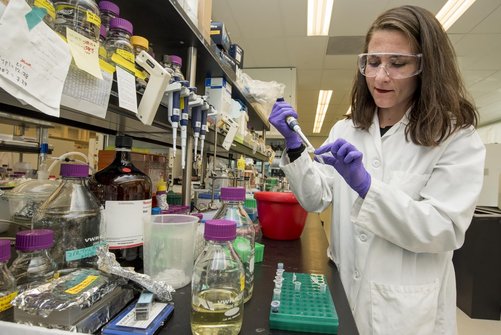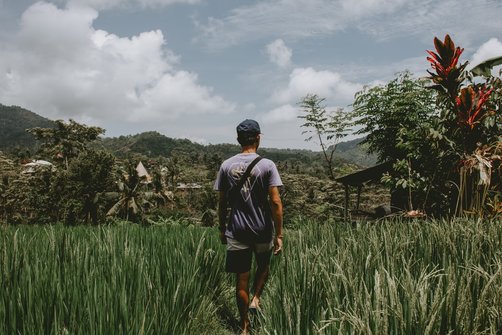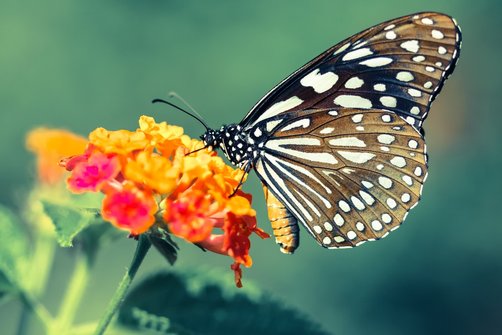Can a biologist be an entrepreneur?
15.04.2019.
A true call
When you ask a non-biologist what a biologist can do, you quickly come to the same group of answers. Either someone working in some kind of a laboratory (in medicine, pharmacy, biochemistry…) become a teacher or someone who is catching butterflies on the meadows (by the way, this is mostly realistic in books or as a passionate hobby, in real life its almost never so “romantic”).

Already as a child with experience of 8 winters, I had a wish of becoming a biology teacher, even though I didn’t have a clue what this actually means, what skill I will have to obtain, what education to take and also didn’t have a feeling of such wide diapason a teacher needs. What else can a biologist do apart from running on meadows was not my concern at that moment.
At the end of primary and high school I already knew, as it is also socially accepted, that many fields of molecular biology and pharmacy are part of the business world. Yes, people are prepared to pay to have better health the same way they are prepared to pay for fitness, (artificially at least on paper) healthy food, aromatic sprays for beds etc. but are they also prepared to pay for having a better nature? Somehow, nature is for us something relative, something in which not enough people have a belief or think that we are affecting it. These thoughts are nowadays for sure opening a series of questions when you start addressing the title’s issue.

Just before the university, I added to my knowledge that educators can be entrepreneurs. As you would assume, in biology, most educators finish in public schools, although more and more are those who are organizing private workshops on growing and using spices, alternative medicine, “survival skills", edible wild plants etc. But this is still not nature, it's human use (sometimes even abuse) of nature.
Educators of nature, in my opinion, mostly work in tourism, representing those who are bringing natural facts and beauties found in nature to all “commoners”. Most of them are working as nature guides, showing people mostly birds, in many regions also smaller and larger animals, somewhere even lions, tigers and bears. Of course, they have to posses good knowledge on nature inhabitants, as well as our supposed behaviour in nature (which should be basic knowledge of all citizens) and at least basic entrepreneurship skills to be able to run this kind of business.
Abuse of nature
Nowadays more and more people (thankfully still not in large numbers) also connect biologists with those who are stopping human development by building wind mills, water damns etc. Well, this is mostly not true, since not a lot of biologists are nature activists. Even me as a high schooler was quite wrong with this impression. In reality, it’s actually more "eserved" for people with better background in social sciences, law etc, which are skills that unfortunately lack with biologists. Despite the presence of will, many biologists refuse to start working in this area. So, a question pops to my mind: "Can this mixed group join and start working as an actual entrepreneur?"

A majority of nature activists is lacking basic knowledge of nature and most probably apart from pharmacy, nature protection is one of the best opportunities for an entrepreneur at the moment. But please, don’t think now on so-called tree huggers, who are protecting a tree (possibly even allochthonous) in the village, who are fighting against animal farming, rescuing street puppies. Of course, all this can be important, but it's not nature protection itself – again it's more about protecting the human kind before its own abuse. Where are those with at least some basic natural science knowledge who advocate natural state, who push governments and private contractors to respect professional ethics? Or those who promote long term political programs and strategies? Indeed, most of this should be logical to adapt and use, although in many countries this is only on paper.
One of the possible entrepreneurships for me at this moment is actually this idea. To gather similar minds to connect all the aspects of nature protection, law, advocacy, politics and be an actual syndicate for nature and its inhabitants. Also, to procure better and respectful environment. But beware, even though social science skills are more needed for this entrepreneurship to work, basic biological skills and rules have to be a priority. You don’t need another “recycle promoting experiment”.
Nature entrepreneurship
Before the end let's come back to that “romantic” view on biologists’ job opportunities. Remember the idea of someone running through a flower flourished meadow with a white net in their hands with a wish to catch that specific butterfly?
Yes, this kind of entrepreneurs also exists, with one important difference on which most probably you would think at first – romance is in most cases gone away. As those opportunities are mostly in urbanized areas where building plans are in place instead of agricultural landscapes… most of those entrepreneurs catch butterflies in ditches, near cornfields, highways, dumps etc. Those are commonly also the places where biodiversity can be the lowest in a wider area.
Of course, with different areas of fields, biology is not very different. In my writing, butterflies are just used as a symbol. Is this still romantic to you? Well, I haven’t forgotten a dream of catching beautiful butterflies in flourished meadows and this I can still do in reality as a hobby. Although, less and less places with untouched or even preserved nature sites exist for me to put this dream to life. Let’s pop the last question. Will field biologists be able to become entrepreneurs in the future? This is all up to us as a society, as civilization. We have to start respecting what we have received from the past generations and from the Nature itself. Based on that, I think that my idea of nature entrepreneurship is much needed!
